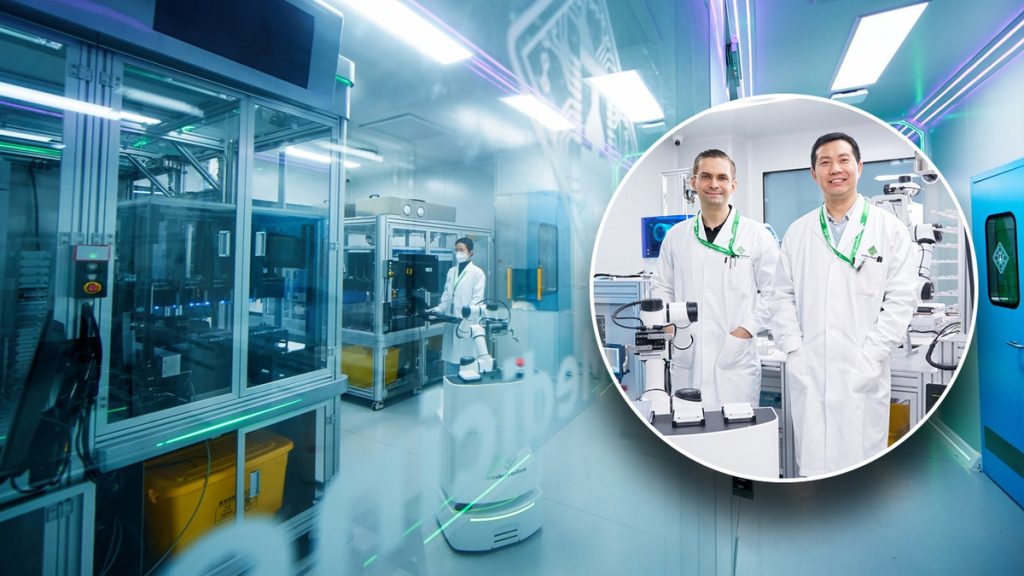
Artificial intelligence is increasingly moving into the health care arena and helping to streamline medical processes — including the creation of new drugs.
Insilico Medicine, an AI-driven biotech company based in Hong Kong and in New York City, recently announced that its new AI-designed drug for COVID-19 has entered Phase I clinical trials.
This oral drug is a treatment, not a vaccine. If approved, it would become the first-ever alternative to Paxlovid, noted Alex Zhavoronkov, PhD, founder and CEO of Insilico Medicine.
WHAT IS ARTIFICIAL INTELLIGENCE?
“Generative AI is transforming every area of human development,” said Zhavoronkov in a press release announcing the new discovery.
“We’re extremely happy to announce that our second small molecule therapeutic — generated using generative AI — is now entering human clinical trials.”
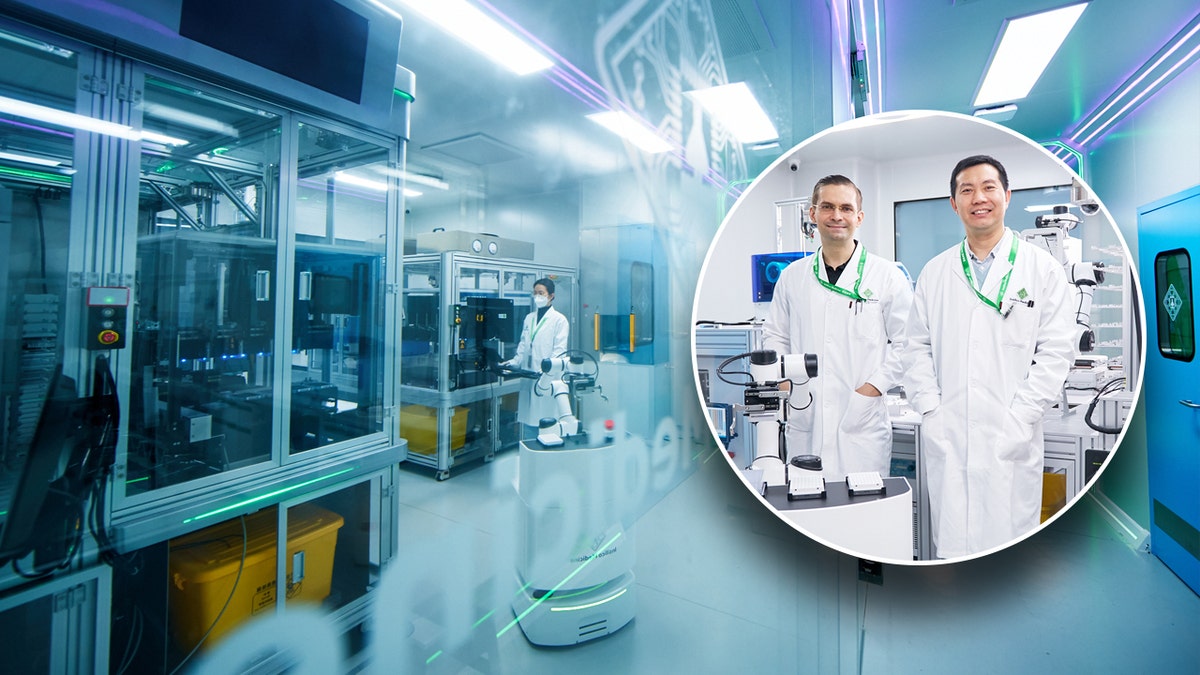
Insilico Medicine, an AI-driven biotech company based in Hong Kong and Ne York City, recently announced that its new AI-designed drug for COVID-19 has entered Phase I clinical trials. Dr. Alex Zhavoronkov, founder and CEO, left in inset, is pictured with Dr. Feng Ren, co-CEO and chief scientific officer. (Insilico Medicine)
Paxlovid, which is currently the only medication available to treat COVID symptoms, has been linked to some undesirable side effects, Insilico noted.
One of these is “Paxlovid rebound,” which is when patients recover from COVID and test negative — but then test positive again a short time later.
Another documented side effect, “Paxlovid mouth,” occurs when the drug leaves an unpleasant taste in the mouth for those who take it.
“Generative AI is transforming every area of human development.”
An additional limitation of Paxlovid is that as COVID mutates, drug-resistant strains can emerge.
FIRST AI-GENERATED DRUG ENTERS HUMAN CLINICAL TRIALS, TARGETING CHRONIC LUNG DISEASE PATIENTS
Insilico’s new pill has been shown to be effective against variants that are resistant to Paxlovid, and is also more stable and works for a longer period of time, according to Zhavoronkov.
In preclinical studies, ISM3312 “significantly reduced” viral load in lung tissue and decreased lung inflammation, the company stated in the release.
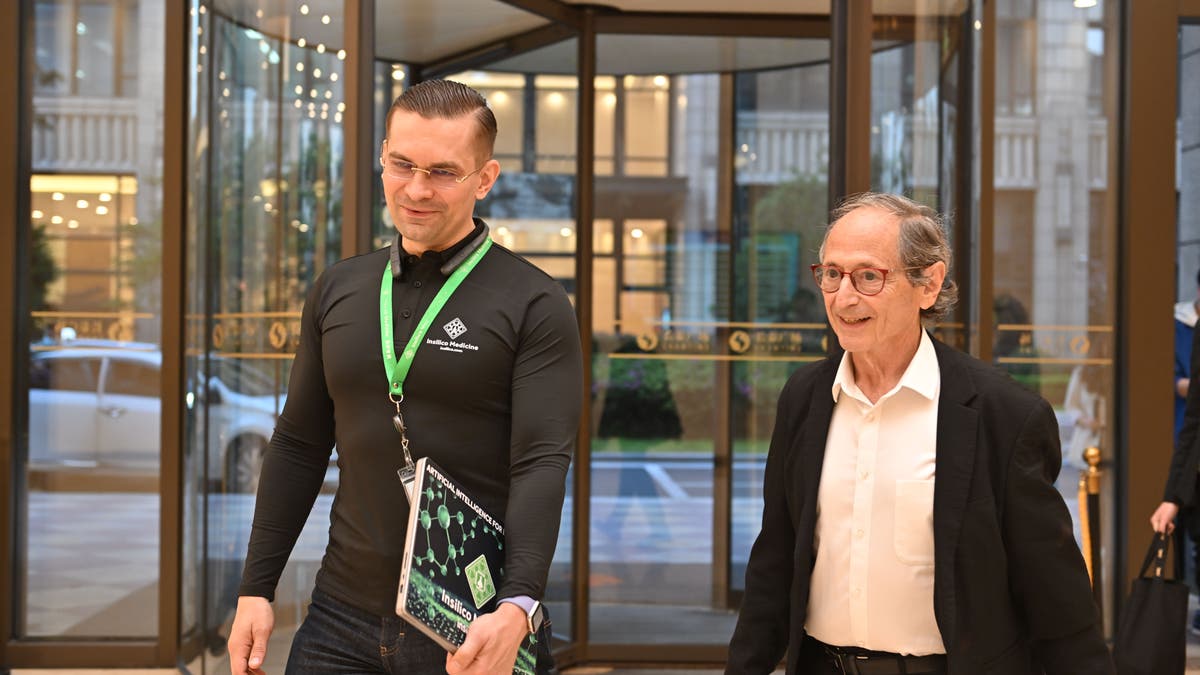
Dr. Alex Zhavoronkov, left, is pictured with Dr. Michael Levitt, Nobel Prize winner in chemistry, who has spoken previously about the development of Insilico’s novel inhibitor for COVID. (Insilico Medicine)
To create its new drug, Insilico’s research team first used its target discovery platform, PandaOmics, to identify the target protein within the coronavirus.
Next, it used its in-house “generative chemistry platform,” Chemistry42, to generate new molecules that would attack that protein as a means of treating COVID and other coronaviruses.
One “hit molecule,” called ISM3312, was shown to be effective in February 2020.
The company then filed a patent application for the drug in April 2020.
STUDENTS USE AI TECHNOLOGY TO FIND NEW BRAIN TUMOR THERAPY TARGETS — WITH A GOAL OF FIGHTING DISEASE FASTER
“The drug has been shown to be effective against all variants, as well as other types of coronaviruses that cause diseases, including severe acute respiratory syndrome (SARS) and Middle East respiratory syndrome (MERS),” Zhavoronkov told Fox News Digital.
Insilico’s newly discovered molecule has been shown to have “broad antivirus activity against multiple strains and variants,” he said.

Dr. Alex Zhavoronkov, PhD, founder and CEO of Insilico Medicine, is pictured sleeping at the lab as the team was working on developing the COVID drug around the clock beginning in 2020. (Insilico Medicine)
Another benefit is that the new drug will be easy to produce in large quantities, according to Zhavoronkov.
“Our molecule requires only a two-step process using simple, commercially available starting materials,” he said.
ISM3312 is currently being evaluated in a Phase 1 study to assess the safety and tolerability of the drug in healthy volunteers.
AI-DISCOVERED DRUG SHOWS ‘ENORMOUS POTENTIAL’ TO TREAT SCHIZOPHRENIA: ‘REAL NEED FOR BETTER TREATMENT’
The compound is also currently being tested against the EG.5 COVID variant.
The results of the clinical trials are expected to be released by the end of 2023.
“Following the completion of the Phase 1 healthy volunteer study, further decisions will be made about testing the compound in coronavirus-infected patients,” said Zhavoronkov.
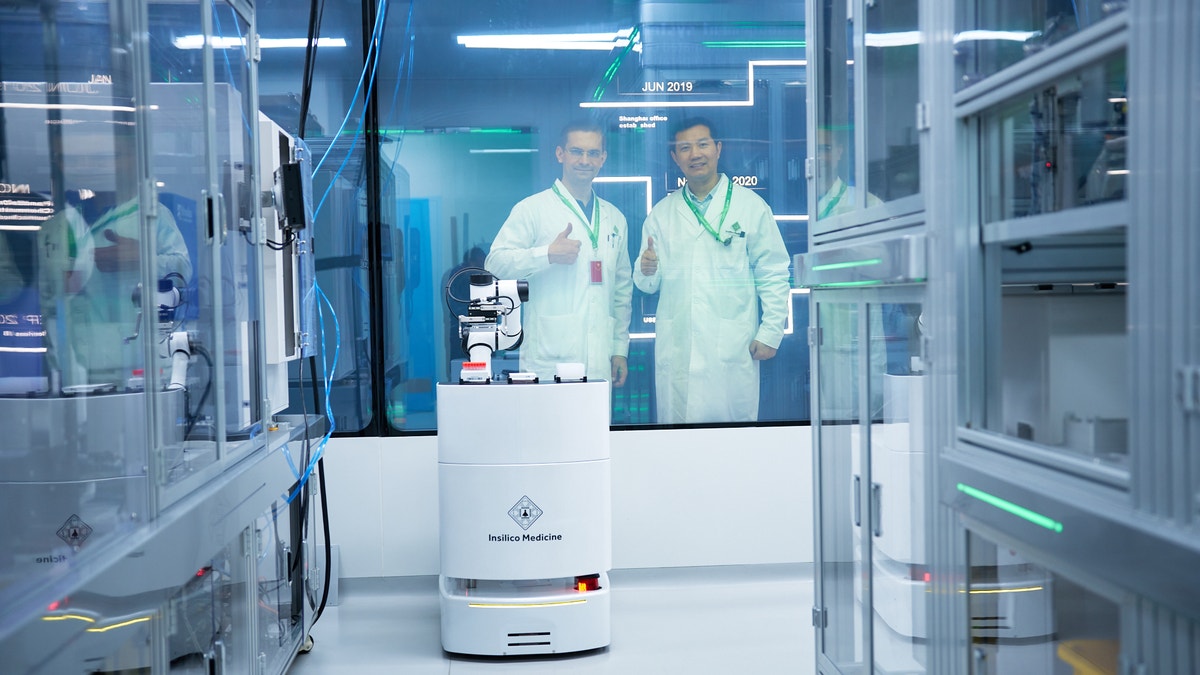
Dr. Alex Zhavoronkov (left) is pictured with Dr. Feng Ren, co-CEO and chief scientific officer of Insilico Medicine. (Insilico Medicine)
Insilico’s research team believes its new drug is a prime example of how AI is helping to accelerate new, more effective treatments for COVID.
“We cannot afford to dismiss COVID as a problem of the past,” Zhavoronkov told Fox News Digital.
He added, “Generative AI offers us a powerful tool for accelerating the drug discovery process and allows us to quickly identify new solutions that we hope can provide more potent defenses against mutating COVID strains and prevent another pandemic.”
CLICK HERE TO SIGN UP FOR OUR HEALTH NEWSLETTER
Dr. Harvey Castro, a Dallas, Texas-based board-certified emergency medicine physician and national speaker on artificial intelligence in health care, was not involved in the research but agreed that ISM3312 represents a “significant step forward” in the fight against COVID-19 and the use of AI for drug discovery.
He pointed out, however, that “doctors should remain cautious.”
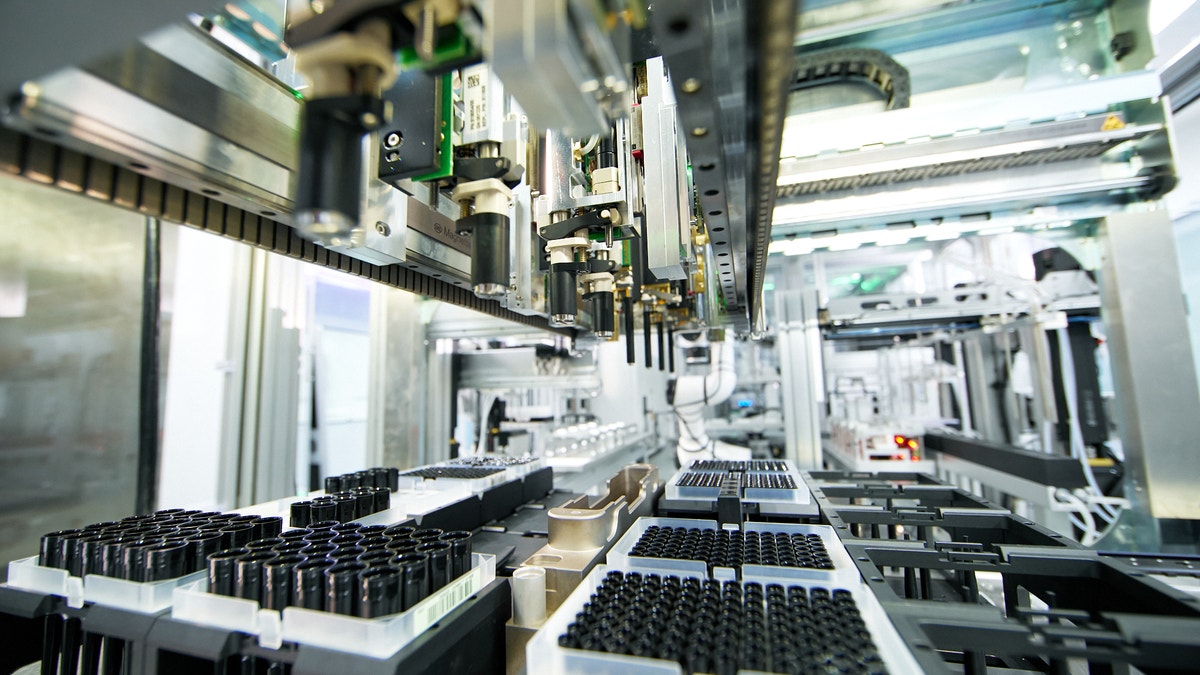
Insilico Medicine’s AI-run robotics laboratory in Hong Kong is pictured. (Insilico Medicine)
“For health care providers, the advent of AI-generated drugs like ISM3312 opens up new avenues for treatment — but it’s crucial to stay updated on the clinical trials and research data for ISM3312 and consider the patient’s existing medication regimen before prescribing a new drug,” he told Fox News Digital.
For patients, Castro said ISM3312 “represents hope.”
CLICK HERE TO GET THE FOX NEWS APP
He said, though, that “it’s essential to consult health care providers for personalized advice and stay informed about the latest research and clinical trial results for the drug.”
Said Castro as well, “While this new drug offers a promising alternative to treating the virus, more extensive clinical trials and global regulatory approvals are needed to confirm its efficacy and safety.”

 Latest Breaking News Online News Portal
Latest Breaking News Online News Portal




